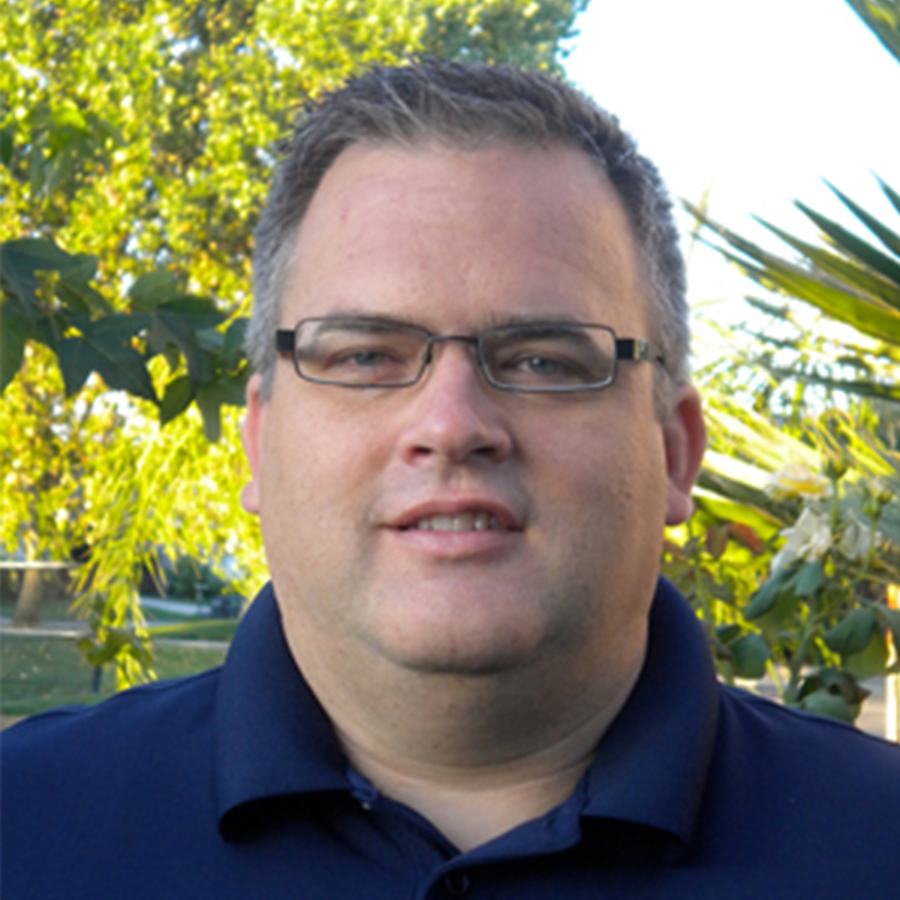Stabilizing Community on Twisting Cultural Roads
The importance of developing intentional learning communities and how that community can be built and flourish in digital and face-to-face environments.

Dr. Brad Howell
“I think there is something wrong with the front wheel on my motorcycle.”
Those are not the words a parent wants to hear from their young adult learning to ride a motorcycle. But, while we were stopped to transition his rider education from California’s back roads to its’ twisty canyons, my son nervously said those words to me. And now, I was nervous too.
He had passed a rider education course. We had spent hours riding together. The motorcycle appeared to be in excellent condition. Yet, this novice rider had a concern about his front wheel. That seemed oddly specific.
“Why do you think there is a problem?”
“Well, when we pass other motorcycles, the rider points down to my front tire . . . but I can’t find anything wrong.”
As my son’s experience dawned on me, a moment of parental pride crept in.
“Those bikers are giving you the biker wave . . . they are acknowledging that you are on a motorcycle too. Welcome to the biker world!”
My son was experiencing a type of membership in the motorcycle community. He had crossed the threshold. He was now “in.” But he needed someone who was already “in” to make sense of what he was experiencing. He needed a learning community.
Learning communities help learners make mental sense of what they are experiencing. They teach participants how to interpret, understand, and integrate new knowledge, experiences, or mental models with existing ones. Learning communities occur when professors intentionally make space for them to happen.
Trends in technology, inflation, culture, and even demographics are shaping education. As the Vice President of Graduate Programs at Gordon-Conwell Theological Seminary, I experience these twists and turns daily. But in all fairness, these elements are shaping more than education. They are shaping business, centers of worship, even the way we order our food! Additionally, positive experiences students have in one environment raises their expectations in other environments. The ease of using a phone as an event ticket or to board a plane, for example, increases the expectation that participants can move smoothly between digital and physical spaces. In response, some faculty are developing new ways of making space for student learning communities by intentionally fostering connections and the student’s sense of belonging through both in-person and digital environments.
Dr. Karen Mason, Professor of Counseling and Psychology and the Director of the Counseling Program at Gordon-Conwell’s residential campus, teaches across face-to-face, online, and blended course contexts. As would be expected for a counseling professor, Dr. Mason appreciates face-to-face education, but was surprised to discover a path to community in digital spaces too.
“One of my strategies is the liberal use of break-out rooms,” reports Dr. Mason, “so that students get to know each other.” Other professors report a surprising correlation between students knowing where fellow students live on this planet with a stronger sense of student satisfaction with course learning outcomes. That is counter-intuitive, especially if a professor’s mental model prioritizes content delivery. But when students feel isolated and alone, it becomes the learner’s responsibility to contextualize content, which in turn, appears to impede learning outcomes. Digital break-out rooms and in-person break-out groups, in contrast, are excellent spaces for students to begin identifying elements of the course that provide mental resonance, elements that create mental dissonance, and to begin unpacking why that might be. Preparing well-conceived questions in advance allow professors to invite students down an intended formational path. Knowing other students allows participants to curate their own thoughts with the other students in mind, providing the opportunity for everyone to take the formational journey together. Unpacking the experience together allows professors to connect any intellectual dots that may not have already been made, or draw out those which already have.
For participants to feel like they belong, they need to believe they matter. “My experience is that students want more than anything to know that you as the professor care about them,” shares Dr. Mason. This attentiveness is a key strategy to how Dr. Mason demonstrates care for students. The pacing of the semester’s work, the course’s design, and intuitive digital navigation are elements of thoughtful ways to communicate student value before Dr. Mason’s course even begins. Respectful interaction in learning spaces, responsiveness to emails, and intentional feedback in class activities work together to express value to the student during the course itself.
All schools face challenges that are similar to those facing churches, families, and every relational community in a digital world. The strategies to foster connections and a student’s sense of belonging employed by Dr. Mason are useful in both digital and face-to-face learning contexts. A wave to a fellow motorcyclist might communicate that we are connected, but it takes a learning community to understand that wave means we belong. Let’s be sure to create spaces that clearly communicate to students they belong, so they, in fact, can.
 Dr. Brad Howell, Gordon-Conwell’s Vice President of Graduate Programs, oversees the unification of administrative people, processes, policies, and platforms upon which all of our students depend. Having served in various ministry roles through the 1990s and early 2000s, Dr. Howell moved to academic, administrative leadership in 2008. He joined Gordon-Conwell in 2018 as Director of the Jacksonville campus and was soon promoted to Dean of Teaching & Learning and Executive Director of the Southeast region. He continues researching the implications of digital culture on education, ministry, and interpersonal relationships. With a particular emphasis on developing mental frameworks from which to interpret rapidly changing culture realities, his work integrates historical, contemporary, and biblical vantage points to develop innovative ministry leadership strategies.
Dr. Brad Howell, Gordon-Conwell’s Vice President of Graduate Programs, oversees the unification of administrative people, processes, policies, and platforms upon which all of our students depend. Having served in various ministry roles through the 1990s and early 2000s, Dr. Howell moved to academic, administrative leadership in 2008. He joined Gordon-Conwell in 2018 as Director of the Jacksonville campus and was soon promoted to Dean of Teaching & Learning and Executive Director of the Southeast region. He continues researching the implications of digital culture on education, ministry, and interpersonal relationships. With a particular emphasis on developing mental frameworks from which to interpret rapidly changing culture realities, his work integrates historical, contemporary, and biblical vantage points to develop innovative ministry leadership strategies.